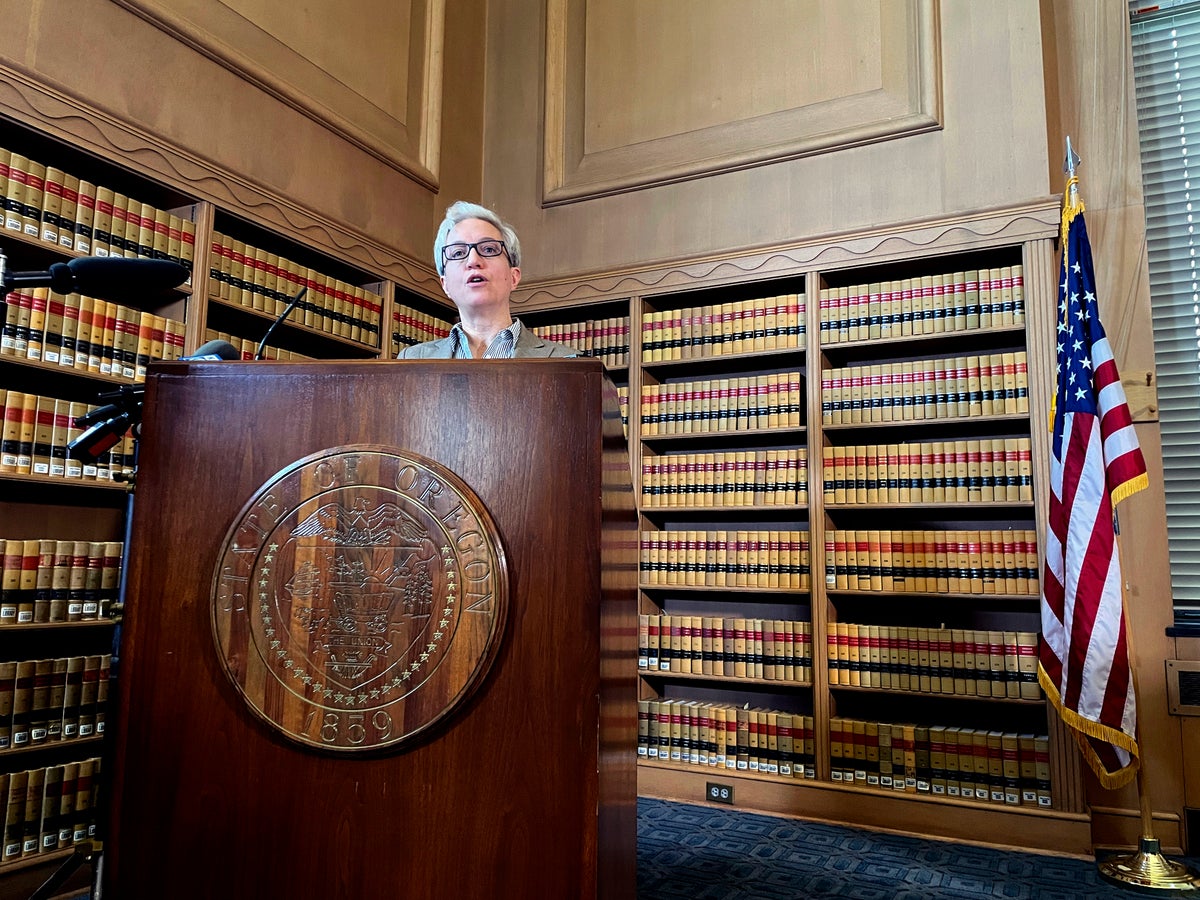
Oregon's newly sworn-in Democratic Gov. Tina Kotek signed three executive orders intended to combat homelessness on her first full day in office Tuesday, in a sign of how critical the shortage of affordable housing has become in the state and across the nation.
The orders call for boosting construction and marshaling resources to help the nearly 18,000 people living outside in Oregon.
Advocates welcomed the measures. But they said that shoring up mental health and addiction services must also occur in order to help people move off the street.
Just last year, Oregon lawmakers passed a spending package that included $400 million to address homelessness and housing. But soaring inflation, rising rents and a spiraling drug addiction crisis have meant that that money hasn't gone as far as it needs to in reducing the state's homeless population.
The first executive order declares a homeless emergency for most of the state; the second directs state agencies to prioritize reducing homelessness; and the third sets a housing construction target of 36,000 units per year, an 80% increase over current production, in a bid to address the state's housing shortage.
Oregon is among the five states — along with California, Louisiana, Tennessee and Arizona — that have seen the largest increases in the number of people living outside since 2020. Its homeless population has grown by more than 3,300 people since then, a 22.5% increase, according to an annual report from the U.S. Department of Housing and Urban Development.
Kotek described the emergency declaration, which applies to regions where the number of unsheltered homeless people has increased by at least 50% since 2017, as similar to “what we do when there's a natural disaster."
“This is a man-made disaster,” Kotek told reporters during a briefing at the State Library of Oregon in the state capital Salem on Tuesday. “This is a humanitarian crisis.”
The declaration instructs the state’s emergency management agency to provide assistance, support and resources to municipalities and create an inventory of vacant and available state land that could be used for potential construction projects.
Like other West Coast states, Oregon is struggling with a housing shortage. The state is short 110,000 housing units and needs to build more than a half-million homes over the next 20 years in order to keep up with demand, officials have estimated.
The goal of building 36,000 new homes per year outlined in Kotek's second executive order would allow the state to meet that 550,000-home target. Housing advocates have welcomed the order but say that removing bureaucratic red tape will be key to making sure that quota is met.
It can take years to go through the various and often costly permitting and review processes before a project can even break ground, said Trell Anderson, executive director of Northwest Housing Alternatives, which has 800 units of affordable housing under construction in the state.
“We’re sprinting and running as hard as we can, getting units built," Anderson said. "But the economic engine that is causing homelessness just seems to be picking up pace.”
While the shortage of affordable housing and rising rents are among the main drivers of homelessness, a lack of mental health and addiction resources are also fueling the crisis.
Oregon has the highest drug addiction rate of any state and ranks last in access to mental health treatment, according to federal data from the 2021 National Survey on Drug Use and Health.
Advocates say that moving someone off the streets and simply giving them keys to a new unit is not enough. Many people need treatment and counseling with access to trained professionals in their living environment in order to ensure they stay housed.
“It’s more than just the housing unit itself," said Andy Mendenhall, CEO of Central City Concern, a housing and homeless services nonprofit in Portland. "It’s the housing unit, plus the supportive services to help folks remain engaged with their health care, their behavioral health care, and help navigate them and create community, so that folks can engage in healthier behaviors.”
Kotek will also ask lawmakers to approve $130 million in emergency funding to help people move off the streets. The legislative session starts next week.
Democrats still control both chambers of the Legislature but lost their three-fifths supermajority in November’s election, meaning they will need some Republican support to raise revenue through taxes.







